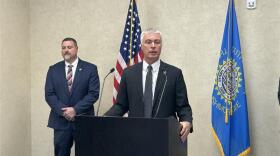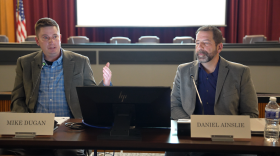-
Gov. Larry Rhoden continues to make his pitch that the state’s Future Fund should stay as is. The governor-controlled fund has been controversial in recent years due to questionable expenditures.
-
Despite a low response rate, the Center for the Prevention of Child Maltreatment says the survey yielded useful information for advocates and stakeholders in early childhood development.
-
City officials discussed common questions, misconceptions about Tax Increment Financing (TIF) ahead of Rapid City's Special TIF District Election on January 20, 2026.
-
The South Dakota GOP reports fewer than $100 in donations brought in on its federal filings for the third straight month.
-
For every adult released from the South Dakota prison system in 2021, half returned to prison by 2024. That’s according to the Department of Corrections annual report. A governor-appointed task force is working to lower that figure.
-
Advocates say changes within South Dakota’s prison system can’t come soon enough, but the impact of any changes won’t be fully seen for years.
-
Several plots of land could be annexed by the Black Hills city of Piedmont. It’s the latest effort activists and city leadership say could slow a seemingly imminent mine near the city.
-
The state’s School Finance Accountability Board is maintaining its position after lawmakers rejected its recommended sanctions on the Frederick Area and Miller School Districts a couple weeks ago.
-
The state Housing Authority is conducting the Point-In-Time, or PIT, Survey just after the new year. The goal is to get the most accurate tally of South Dakota’s unhoused population.
-
South Dakota Highway Patrol saturation patrols in Belle Fourche, Huron, and Yankton led to dozens of arrests.
-
Some South Dakota agriculture producers aren’t expecting much from recently announced federal relief dollars.
-
The U.S. Senate has unanimously passed the Wounded Knee Massacre Memorial and Sacred Site Act. It now heads to President Donald Trump’s desk for a signature.















